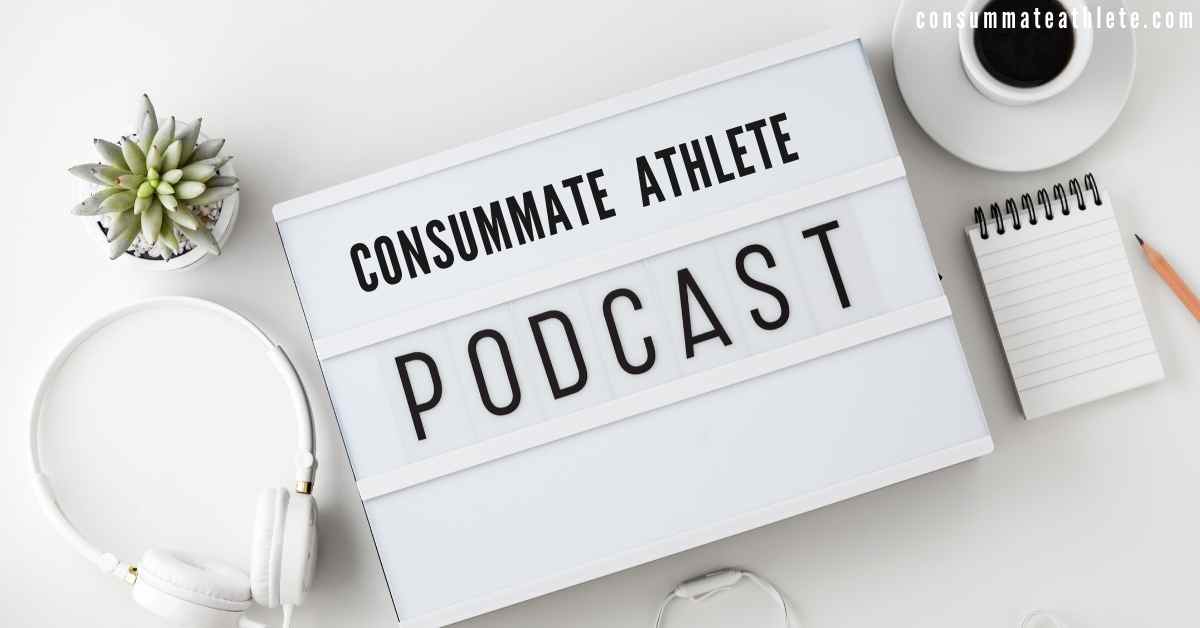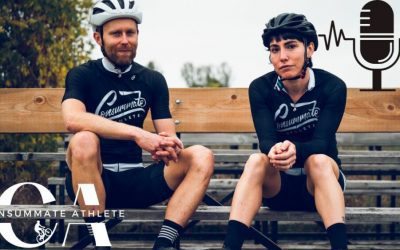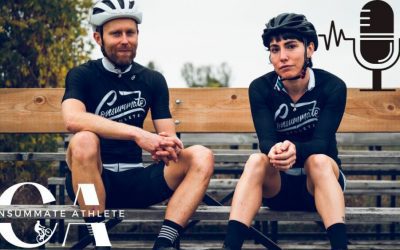Today we discuss:
– How to know if you are plateauing and what to do about it
– Supplements – are they good?
– Post-workout for Busy People?
Please consider supporting it by:
a) Rate and review on your preferred app! Easy and Free! Thank You!
b) Order Shred-Girls by Molly Hurford https://amzn.to/2RBDlJy
c) Donate to the Podcast www.wideanglepodium.com/donate
DOWNLOAD THIS CONSUMMATE ATHLETE EPISODE
RSS/Play Live/Google: http://consummateathlete.wideanglepodium.libsynpro.com/
Show Sponsors
TOPICS AND LINKS FROM TODAYS SHOW:
UPDATES
- Patagonia Talk https://shred-girls.com/2019/07/16/come-watch-life-pie-patagonia-toronto-july-29/
- Peter at MTB Nationals for Canada
- Peter working on updating Training Peaks Training plans and 100% Custom plans for fall and cyclocross
- shred girls – site and schwag updated
plateau
- testing article by Peter – Map My Ride
- Peter at Nationals as example of plateau with similar/less training but health?
- Linear Gains – normal to have fast/linear progress early then harder as more skilled
- Periodization/Planning
- Progressive Overload – training needs to get harder as body adapts (or different)
- Try something new, new routine, ‘Everything works for 6 weeks’ DAN JOHN
SUPPLEMENTS
Past podcasts that are relevant to supplements and studies
- Kyle Boorsma
- Alex Hutchinson –
- Upcoming David Epstein and his book RANGE
- Dr. Bubbs –
Position Stands and resources to learn HOW and WHY and WHO
- ISSN https://jissn.biomedcentral.com/articles/10.1186/s12970-018-0242-y
- IOC https://bjsm.bmj.com/content/52/7/439
- Examine.com = https://examine.com/supplements/sodium-bicarbonate/
- Alex Hutchinson – Beet root juice , even for elites, + bathroom … also altitude https://www.outsideonline.com/2387931/beet-juice-health-benefits-study
- YLSM Sports infographic what may work https://ylmsportscience.com/2015/07/17/nutrition-supplements-what-does-really-work-by-ylmsportscience/
- Trent Stellingwerff has a lot of good content based on his extensive practical and academic experience
Globally on Supplements
- Additive effects (Trent Stellingwerff)
- magic pill – looking for quick fix vs. longer-term focus – ignoring the skill/mental/tactical aspects
- Enjoy benefits of linear gains / being a beginner – well thought out training should elicit benefit
Things to ponder when considering a supplement
- Think who am I and what am I trying to do ? do you need more muscle? Are you not recovering as fast as you could be
- Is there a way to get this through diet? (ie. sleep!, whey / bcaa in dairy protein, improving the balanced diet of fats/proteins vs. high sugar/low quality)
- is there a mechanism for why this should work? (ie.
- Is it practical to use in your life/sport (ie. Side effects and time to use/apply)
- SIDE EFFECTS – GI distress, BLUNTING of adaptations, no/negative responders,
- Is this company selling something? influencer?
- Is it a proprietary blend or something odd or do you recognize the active ingredients (or the ingredients in general)
- Is it banned or from a reputable source (quality control / NSF)
Trent Stellingwerff supplement recommendations what works
- http://www.runhilaryrun.ca/Trent/GeneralInterestArticles/Stellingwerff-%20SupplementationRecommendations.pdf
- The vast majority of training and competition load and recovery is achieved through proper diet and recovery practices (such as recovery nutrition immediately post-training, quality sleep, afternoon naps, low surrounding external stresses and paramedical support). To aid in this process, athletes have looked towards supplements. However, only a hand-full of supplements have been shown to possibly aid in this process during very intense training and competition schedules. The majority of the supplement’s have no scientific support and just result in added and unwarranted expenses to an athlete. However, there are a few supplements that do have scientific support, which can be utilized by an athlete already exercising good general nutrition and recovery practices— this needs to be taken care of first! A poor diet and recovery practices cannot be compensated for by a supplementation regime. Further, regular blood analysis should be completed to check for any abnormalities. Finally, it cannot be stressed enough that when purchasing supplements the athlete needs to be extremely cautious regarding potential inadvertent doping. Look for 100% pure-products from reputable companies that have also been certified by either NSF: http://www.nsf.org/consumer/athletic_banned_substances/
Lying to Win—Placebos and Sport Science
https://pdfs.semanticscholar.org/a515/112a3a2b0d08e9b1ae66e10ed9102ffaf218.pdf
- Trent Stellingwerff addressed an inconvenient truth in sport science; when it comes to performance-enhancing effects of popular ergogenic aids, marginal gains do not aggregate. The 1% to 3% improvements observed with many ergogenic aids are rarely additive.7–9 Why might this be the case? One possible explanation is that that many ergogenic aids ultimately act on a central mechanism that regulates performance. As a result, most evidencebased supplements merely allow an athlete to “dig a little deeper.” Sport scientists have often observed that just believing in a novel and exciting performance-enhancing treatment can produce improvements in performance regardless of introducing a real treatment effect
Science of sport https://www.scienceofrunning.com/2013/10/the-placebo-response-belief.html?v=3e8d115eb4b3
- the same article, I found the statements by a good friend, Trent Stellingwerff, very intriguing. Stellingwerff brought up the fact that the effects of proven ergogenic aids don’t aggregate. Meaning that if we get a 2% boost from caffeine, another 1% from beta alanine, and 2% from beet root juice, if we took all of them, we don’t get a 5% bump in performance. They all act on different physiological systems, so why is there no additive effect? The authors speculate that, they all act on a central mechanism that regulates performance (i.e. like the one talked about with fatigue above).
- What it means to me is instead of telling an athlete to take this drink that you know is a placebo to improve performance, give them something that actually seems to, and sell it hard that it does. Don’t just say, this may or may not work, or give the research speak that in 10 studies it improved performance but in 3 it didn’t so hopefully you are in the 10. Say that this stuff works really well, it’s strongly research-backed (10 vs. 3 is strong!), and it works because of X, Y, and Z.




